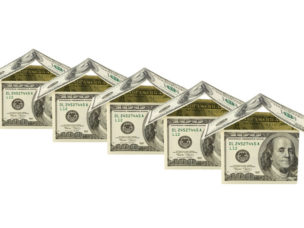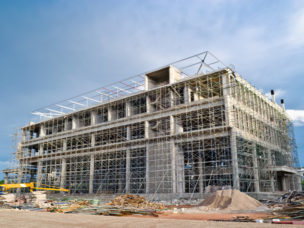Stay in the know
Subscribe to the Real Estate Blog and we’ll send you an email each time something new is posted.
Subscribe to the Real Estate Blog and we’ll send you an email each time something new is posted.
Blogs
Real Estate Blog
LEED Certification – Worth the Cost?
Dana Developer has just acquired a coveted brownfield site in Blackacre and is planning to construct a 300,000 square foot Class A office building with retail at street level. There is no question that the facility will be built at least to minimum LEED-certifiable standards, as the Blackacre building code requires this for all new construction. Because of the project’s location on a brownfield site, its proximity to public transportation, its innovative design features, and a state-of-the art bike rack, Dana believes the project should be able to achieve LEED Gold certification. Should she go for it? Aside from the feel-good aspects of achieving certification, are there quantifiable, positive impacts on project value that she could realize?
The answer is apparently still evolving. A recent article by Reese Fox at Deloitte Financial Advisory Services LLP sets out some of the possible implications of LEED certification on real estate appraisal. As this article points out, one mainstay approach to valuation is the analysis of “comps.” According to the USGBC website, approximately 9 billion square feet of space are in some stage of LEED certification, which would seem to indicate that the pool of comparable projects is fairly large. However, in real estate “location is everything” – and, while the number of certified projects is growing (1.6 million square feet daily, worldwide, according to USGBC), there may not be other similar LEED certified projects in Blackacre. Other potential issues in valuing a LEED certified building include depreciation of particular features of green buildings, evaluating the premium potential tenants may be willing to pay to occupy space in such a project, and comparing construction costs (which are often higher for LEED certified buildings than for conventional construction). Perhaps the most challenging aspect of valuing green buildings is putting a price tag on obtaining the actual LEED certification vs. simply building to a greener standard. Some commentators have recently cautioned that using terms like “LEED Compliant” or “built to LEED standards” could be viewed as misleading and should perhaps be avoided.
On the legal front, caselaw will certainly evolve in the future concerning the value of LEED certification. In a recent tax appeal before the Oregon Tax Court, CLP Elements LLC v. Benton County Assessor, the tax assessor argued for a higher building valuation based in part on the fact that the property had made substantial progress toward achieving LEED Silver certification (and was, at the time, purported to be the only privately-fund LEED Silver project in Oregon – did someone mention comps?). The property owner countered that the property was not certified on any level, and would, in fact, never be certified. The court decided the case on other grounds. However, we can expect to see the LEED certification argument raised in other cases and in other contexts.



